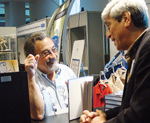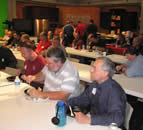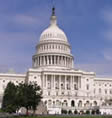A Career in Broadcast Engineering
Since the beginning of commercial broadcasting, individuals have entered the field of broadcast engineering using various paths. Some learned at the knee of an experienced radio or television engineer. Others have taken a more formal route, earning an associate degree from a trade school or junior college, or a bachelors degree from a college or university. The latter is more typical today because of the complexity of the technology involved.
Suggested courses of study include electronics, electrical engineering, computer science and computer programming. Though many schools offer courses or degrees in these subjects, a number of schools offer degrees that are specifically designed to prepare people to work in technical positions at broadcast stations and other electronic media. The SBE has certified a select number of these schools, reviewing their curriculum periodically to ensure that they are providing a program which teaches current methods using the latest technology. For more information about these schools, visit the SBE Certified Schools page.
What is the Society of Broadcast Engineers?
The Society of Broadcast Engineers (SBE) is the only
organization devoted to the advancement of all levels and
types of broadcast engineering.
With more than 5,000 members and more than 100 local
chapters, SBE provides a forum for the exchange of ideas and
the sharing of information to help you keep pace with our
rapidly changing industry. SBE amplifies the voices of
broadcast engineers by validating your skills with professional
certification, by offering
educational
opportunities to
maintain and expand
those skills and by
speaking out on
technical regulatory
issues that affect how
you work.
All this adds up to
keeping you at the top
of your field, enhancing
your value to your
employer, or if you are self-employed, preparing you to meet
the changing needs of your clients.
SBE, a non-profit professional organization formed in 1964, is committed to serving broadcast engineers no matter what level. From the studio operator to the maintenance engineer and the chief engineer to the vice president of engineering, SBE members come from commercial and non-commercial radio and television stations, cable, satellite and mobile facilities. A growing segment of members are engaging the industry on their own as consultants and contractors.
Field and sales engineers and
engineers from recording studios, schools, colleges, production
houses, corporate audio-visual departments, the military and other
facilities are also members of SBE.
There are many local SBE chapters around the country where you can meet broadcast engineers and learn about the field. Regular chapter meetings and special events offer you a chance to expand your technical knowledge through technical presentations, tours and the sharing of practical tips and tricks. Local chapters are also a place where colleagues can become lifelong friends.
How do I join the SBE?
Applications for Youth, Student and Regular membership are available at the SBE website.
or, for more information, contact:
Society of Broadcast Engineers, Inc.
9102 N. Meridian St., Ste. 150
Indianapolis, IN 46260
Tele.: 317-846-9000
FAX: 317-846-9120
www.sbe.org









